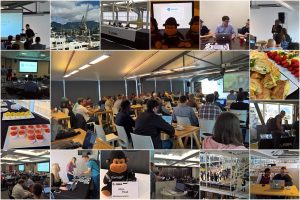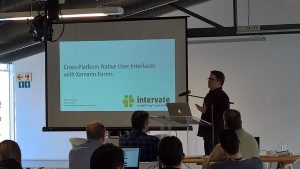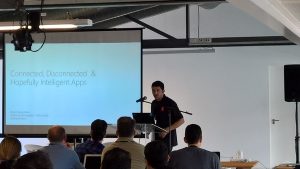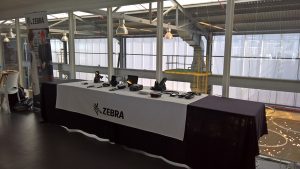Visual Studio has become a one stop shop for any type of development. But did you know you can do Arduino development as well? There is a Visual Studio extension called Visual Micro (http://www.visualmicro.com) which will allow Arduino development and debugging within Visual Studio IDE, with the full development experience you have become used to. This is a high level overview of what is provided.

What’s really great about having Arduino support within Visual Studio is, you can group together all the various different projects that makes up your solution all together within a Visual Studio Solution.

In a world of Iot and cross platform (or multi platform) development this is perfect. You could have one or more Arduino projects, .NET Micro framework projects, a Xamarin Mobile client and the back-end (be it an on-premise ASP .NET WEB API solution, or in the cloud with something like Azure Mobile Services) all managed together in a single Visual Studio solution.
Installing Visual Micro
Visual Micro can be downloaded here: http://www.visualmicro.com/page/Arduino-Visual-Studio-Downloads.aspx It is a Visual Studio extension which will be installed within Visual Studio. There is a version for both Visual Studio 2015 and 2017 RC. Be sure to have the standard Arduino IDE installed as well, as it uses this tooling under the hood. Arduino version 1.06 – 1.8 is supported.
The IDE Experience


Both a toolbar and a new menu is added to Visual Studio. The toolbar allows access to quickly configure the connected board and COM port used (via USB). It also allows quick access for building and debugging, however if the Arduino project is the startup project the debugging and build options work as usual direct from the Visual Studio hotkeys, toolbars and menu items. The menu allows for deeper configuration of the compiler, debugging options and other integration options.

Templates are provided to easily create a new Arduino Sketch or Library. Standard Arduino INO files are supported. These standard file types are also used when opening and saving to existing Arduino Sketch files, which ofcourse can be ported back to the Arduino IDE if need be.

The solution explorer is quite neat for the Arduino. All the source files, header files and external dependencies are presented in much the way you have grown accustomed to in Visual Studio.
The Visual Micro Explorer provides a visualization of all libraries installed. There is also reference material and documentation provided along with a collection of Example code. This is great for both learning and quickly looking up something.
The debug experience

Debugging and conditional breakpoints are supported. This does though require a purchase of the Pro version. The pro version has quite a number of additional features aswell which you can read about here: http://www.visualmicro.com/page/What-features-are-included-in-Visual-Micro-Pro.aspx
The live tracing works great. There is also the standard port monitor which does live logging of the Com ports. In the screenshot provided the codes displayed are being reported from an infrared remote control in real-time. The ability to see everything happen, and be visible, at once in an IDE saves a whole load of time.
Conclusion
I’ve been using Visual Micro for a few Arduino related Iot projects and can definitely recommend using it.
Happy Arduino coding! 🙂






























